By RP Staff, on Fri Apr 15, 2011 at 11:00 AM ET Our own Contributing RP, Jeff Smith, may have never dreamed that any good would come from his required stay at a federal prison. But the unlikeliest of environments proved to be an unexpected fountain of entrepreneurial spirit.
Jeff writes about what he learned in this week’s Inc. magazine:
B.J. was one of many fellow inmates with big plans for the future. He vowed that upon his release, he’d leave the dope game and fly straight. He’d recently purchased a porn website targeted at men with a fetish for women having sex on top of or inside luxury cars, with a special focus that explained his nickname. For just $10,000, he had purchased the domain name, the site design, and all of the necessary back-end work enabling financial transactions. The only component B.J. needed to supply were the women, and due to his incarceration, he’d named his 19-year-old son “vice president for personnel and talent development” and charged him with overseeing auditions. Who says a good old-fashioned family business can’t make it anymore?
It was my first week in a federal prison, and I was beginning to see that it was far more nuanced than the hotbed of sex, drugs, and violence depicted on television documentaries. It was teeming with ambitious, street-smart men, many who appear to have been very successful drug dealers on the outside, and some of whom possess business instincts as sharp as those of the CEOs who wined and dined me six months before. Using somewhat different jargon than you might hear at Wharton, they discussed business concepts such as promotional incentives (“I don’t never charge no first-time user”), quality control and new product launches (“you try anything new, you better have some longtime crackhead test your new shit”), territorial expansion (“Once Dude on the East Side got chalked, I had my dopeboys out on his corners befo’ that motherf—er’s body was cold”), and even barriers to entry (“Any motherf—er that wanna do bidness on the West Side know me and my boys ain’t scurred to cap his ass”).
Read the rest of Jeff’s insightful piece here.
By Tom Allen, on Fri Apr 15, 2011 at 8:30 AM ET 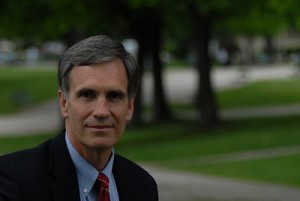
How does one recover from a passion, a deep abiding interest and engagement? From a loss, maybe—that can take some work. But I don’t ever want to recover from politics, though I won’t run again.
I may have had less trouble than some recovering from a loss, because I chose after 12 years in Congress to take a long-shot chance at a U.S. Senate seat against Sen. Susan Collins, an incumbent with an approval rating over 60 percent. Those odds, I realize even more today, don’t usually work out, and mine did not.
When my friend Bill Delahunt retired rather than run again for the Massachusetts 10th district, he had a simple explanation: “I have a two-year old granddaughter.” I get it. My wife and I have a three-year old grandson and a one-year old granddaughter—with another on the way.
That’s not much of a prescription for younger recovering politicians, but it works for some of us.
I do miss the people, my constituents in Maine, all over the state. People of all ages and backgrounds from all walks of life; the students, the retired, labor activists, businessmen and women, health care providers, the uninsured, veterans and war protesters, delegates to party conventions and, yes, even (or especially) supporters of mine at political fund-raisers.
I don’t miss the hours, though. I ran into Tom Davis, the respected Virginia Congressman, on the street in Washington in 2009, the year after we had both left Congress. He just looked at me and said, “Weekends!”
Since I work now as the CEO of the Association of American Publishers, the public policy advocacy organization for the book publishing industry, I spend half of most months in Washington. So I still see some of my friends in (and after 2010) out of Congress. Most of those that have left in the last few years have few regrets, because the atmosphere of congressional activity has become poisonous.
As a form of recovery, I am refusing to leave the arena entirely. Within days of losing my Senate race, I started writing a book which has evolved into an attempt to explain the deeper sources of the polarization that cripples our ability to make long-term strategic decisions about our most pressing public issues.
For me, the signature question of my experience was, “Do these guys believe what they are saying?” That’s what we Democrats asked each other when we heard, “Tax cuts pay for themselves,” or “We’ll be welcomed as liberators,” or “Climate science isn’t proven.” We fully understood that many of our arguments made no sense to Republicans. Why not?
I am exploring the attitudes and ideas that shape our thinking on a range of issues. In particular, I want to highlight the enduring tension in American culture and politics between individualism and community. The working title is Dangerous Convictions: Inside a Polarized Congress. 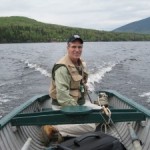
But spring is coming, the snow is melting in Maine, the birds returning and soon the fish will be moving again. I will pick up my fly rod and go off with my wife, Diana, to one of our favorite Maine sporting camps, casting for brook trout and landlocked salmon during the day and listening to the loons at night.
I will finish the book this year, and like most authors, I live in the hope that it will make a difference in how Democrats and Republicans think about each other, and, just perhaps, work together for the common good.
By Jonathan Miller, on Thu Apr 14, 2011 at 12:30 PM ET The one thing that I miss least about leaving the political arena is the lying.
If there’s one quality that unites Democrats and Republicans, politicians and the press corps; it is their mutual propensity for, and expectation of, fabrication.
Often, it’s the small lies that wise and wary observers can sniff out before they do harm: Sure I’ll raise $10,000 for your campaign. You can count on me to support your cause in the legislature. My, you look way too young to be a grandmother! Don’t worry, I’ve had a vasectomy.
Most common is “political spin” which, all too regularly, is simply a euphemism for lying: Barack Obama is a Socialist. The Republicans want to hurt poor people.
Every now and then, you encounter stone-cold, pathological liars in the business. They’re rarer than the profession’s reputation, but I’ve run into too many elected officials, reporters, and political operatives whose every utterance I’ve learned to disbelieve or suffer the consequences. And I despise it.
But should we put all of these liars into jail? Of course not.
Yesterday, Barry Bonds was convicted for obstructing justice by lying to a grand jury about his personal steroid use. (Which begs the question — asked by Dashiell Bennett — how could Bonds be guilty of obstructing justice for lying when the perjury charges against him were rejected by the same jury?)
Note that Bonds was not convicted of — or even charged with — illegal use of steroids. His entire prosecution was based on his lying about his use, in an ultimately unsuccessful effort to protect his professional reputation.
Bonds is not the cleanest case because steroid use is illegal, and Bonds is such an unlikeable narcissist.
 The most famous example of this controversy is even more polarizing. Like Bonds, President Bill Clinton lied to the American people and gave controversial answers to a grand jury in order to protect his public reputation. But here, the underlying misbehavior was not illegal. As Republicans like Newt Gingrich have been quick to assert, the 1998 impeachment was not about the sexual affair — which is not a crime in the District of Columbia — but rather about the President’s lying about it before a grand jury. While Clinton’s verbal parsing may have technically immunized himself against a perjury conviction, it is clear that he was impeached by the House for lying about underlying behavior that wasn’t a crime. The most famous example of this controversy is even more polarizing. Like Bonds, President Bill Clinton lied to the American people and gave controversial answers to a grand jury in order to protect his public reputation. But here, the underlying misbehavior was not illegal. As Republicans like Newt Gingrich have been quick to assert, the 1998 impeachment was not about the sexual affair — which is not a crime in the District of Columbia — but rather about the President’s lying about it before a grand jury. While Clinton’s verbal parsing may have technically immunized himself against a perjury conviction, it is clear that he was impeached by the House for lying about underlying behavior that wasn’t a crime.
As a former member of the Clinton Administration, I’m biased; but I am comfortable saying that, without any partisan considerations, lying about a perfectly legal action should not be the basis of removal from office. And so did most Americans.
Let’s take an even cleaner case: that of contributing RP Jeff Smith. (Again, I admit bias: Jeff is my friend.) If you’ve read his stunningly candid story on this Web site, you know that Jeff was convicted of lying to federal investigators about whether he had knowledge of a scheme to distribute negative fliers about his campaign opponent. The underlying behavior may have violated campaign finance rules, but surely did not merit a jail sentence. And I argue, neither should his lying about it.
Did Jeff deserve to be punished? Absolutely. Stripped of his public office? Perhaps. But sentenced to serve a one-year term in a jail filled with violent offenders? I believe the punishment overwhelmingly exceeded the crime.
Of course, I am not arguing in any way that perjury and/or obstruction of justice should be considered misdemeanors or civil violations in every instance. Of course, lying to an authority about illegal activity, particularly of a violent nature, must be punished severely.
Nor am I arguing that there should be no punishment whatsoever in these circumstances. Lying to an authority is wrong; and the offender must be held accountable for his or her actions.
But someone who lies about a non-violent, non-criminal activity, in order to protect his reputation and family — a very natural, human instinct — should not be treated akin to a violent criminal.
I will soon be interviewing Jeff for RPTV to discuss this issue. But I’d like to know your opinion first: Does lying to a grand jury or an investigator about a legal activity merit a jail sentence? What are your suggestions for reform? Or do you like system the way it is?
By Lisa Miller, on Thu Apr 14, 2011 at 8:45 AM ET What I know for sure — now in my mid forties — is that my life doesn’t have to be an uphill climb.
I also know that my happiness — the enduring sort — is right here, all the time, just waiting for me to have it completely; and that it’s all about today, right now.
A mentor of mine named David, at the Chopra Center for Wellbeing in Carlsbad posted this on his Facebook page last week, and pretty much sums it up:
Accept this moment exactly as it is because every moment leading up to this very moment is exactly as it is. This can be a toughie but whether you like it or not, the past is carved in stone…however, this moment—this precious moment right now has infinite possibilities. What do you want to choose—the past or the now?
Because we live in a culture fed by the notion that we have to work, work, work, for what we “deserve,” we find ourselves conditioned to believe that we don’t deserve anything without the intellectual sweat, sweat, sweat and tears.
I have to include a quote from the Dahli Lama. When asked what surprised him most about humanity, he answered:
Man. Because he sacrifices his health in order to make money. Then he sacrifices his money in order to recuperate his health. And then he is so anxious about the future that he does not enjoy the present; the result being that he does not enjoy the present or the future; he lives as if he is never going to die; and then dies having never really lived.
It seems this notion of work has spilled over into our beliefs about happiness as well. But the truth is that this Western-culture approach is incomplete, isn’t it? It doesn’t acknowledge the truth that there is a deeper, more pervasive aspect of the human experience that is fed by the powerful natural inclination toward happiness.
When we are happy with our undertakings, they are a lot less like work and a lot more like fulfillment. We’ve all heard the adage, “Love your work and you’ll never work a day in your life.” And, as I think about this I can’t help but ask the question of how. Dr. Chopra puts it best in one of his recent new books, The Ultimate Happiness Prescription:
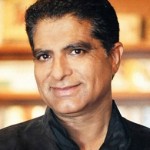 The purpose of life is the expansion of happiness. Happiness is the goal of every other goal. Most people are under the impression that happiness comes from becoming successful, accumulating wealth, being healthy, and having good relationships. There is certainly enormous social pressure to believe that these accomplishments are the same as achieving happiness. However, this is a mistake. Success, wealth, good health, and nurturing relationships are by-products of happiness, not the cause. The purpose of life is the expansion of happiness. Happiness is the goal of every other goal. Most people are under the impression that happiness comes from becoming successful, accumulating wealth, being healthy, and having good relationships. There is certainly enormous social pressure to believe that these accomplishments are the same as achieving happiness. However, this is a mistake. Success, wealth, good health, and nurturing relationships are by-products of happiness, not the cause.
Not the cause!
I’ve actually found this to be true: The more time I spend engaged in creative, fulfilling tasks, the more I seem to attract into my life opportunities that keep allowing me to feel creative and fulfilled.
Teaching is a good example of this. I love teaching and have a life long history of it in various ways: from teaching my 5 year old sister to read when I was just 9, to my Sunday School duties with the kindergarten class at 14, to arts camp directorships, to creating mom/daughter workshops as an adult.
The more I’ve engaged in teacher training opportunities just because they feel great, the more opportunities have landed in my lap that feel great. I’m now teaching yoga and mediation to adults and kids; and I’ve gotta say, I didn’t plan it, but it keeps me yoga-ing and meditating myself, which brings the by-product of happiness in general. Ask my family.
And frankly, the better I feel about the bits of time here and there (I’ve been mothering daughters for 17 years; and have been married to a recovering politician for five more than that) that are creative and fun, the more everything else feels fine, including cleaning out the garage and cooking dinner.
Louise Hay puts it beautifuly in You Can Heal Your Life:
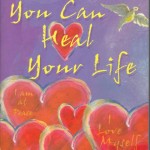 Click on the book cover to sample. The Universe totally supports us in every thought we choose to think and believe. Put another way, our subconscious mind accepts whatever we choose to believe and so what I believe about myself and my lifew becomes true for me. What you choose to think about yourself and about life becomes true for you. And we have unlimited choices about what we can think.
Doesn’t it make sense then to think about enduring happiness?
And like my favorite medicine woman and teacher, Rosalyn Bruyere always says:
“Releasing negative feelings never works, you have to flush them out with good ones.”
Try it! What makes your heart sing? What do you yearn to do, play with, seek? When you think about waking up in the morning, which activities would make you excited to get up and go? In which experiences do you lose track of time?
The answers are the seeds of enduring happiness, and they are as natural to us as breathing, so why not, eh?
It wasn’t too long ago that I was working really hard for happiness–it was an uphill climb and I could never fully appreciate the view along the way. Funny, I’m kinda craving a little mountaineering now if you must know. The real thing. But how’s this for life; I’m planning to climb a a few mountains because it seems like fun (a nice one, with a hiking trail!), and because the air will smell great, and because I’ll enjoy it.
How are you enjoying the mountain, the air, the view, your life? Share your answers here so that others can be inspired.
Namaste and chocolate to yuh.
By Stephanie Doctrow, RP Staff, on Wed Apr 13, 2011 at 1:30 PM ET
Can’t kick that morning coffee habit, no matter how hard you try? According to research, caffeine dependency might be in your genes. [Time]
Talk about a comeback. After losing his job as a salesman, Andy Lunsford discovered his true calling: being an opera star. [CNN]
Got some thoughts on how to turn America around? These 20 success stories have some ideas of their own. [Newsweek]
The average American watches 143 hours of television per year– not surprising, but still scary. Good Magazine gives us eight more meaningful things we could do with our time. [Good Magazine]
By Jonathan Miller, on Wed Apr 13, 2011 at 12:00 PM ET I’m a passionate professional golf fan…about 4-5 weekends a year. I half-pay attention to the ups and downs of the PGA schedule during the season when SportsCenter’s on, but I’m glued to the screen only those Saturdays and Sundays when a “Major Tournament” is being played — the Masters, U.S. Open, British Open, and the PGA champtionship — or every other year when the Ryder Cup stirs up my latent gingoism.
C'mon...You cried too, didn't you? For the past decade, I’ve been a proud, card-carrying member of Team Lefty. Phil “Lefty” Mickelson was known for many years as The Best Golfer in the World Never to Win a Major; and then having shooed the Majors’ Monkey off his back at the 2004 Masters, transformed into The Best Golfer in the World Not Named Tiger Woods. As the son of a cancer victim, my heart broke in 2009 when his mother and his wife, Amy, were diagnosed with breast cancer, and I literally cried when he grabbed Amy for a long embrace after capturing the 2010 Masters.
And what a contrast it was to Lefty’s nemesis, who was going through…OK, if I need to explain Tiger Woods’ annus horribilis to you, then you need to watch television at least once in a while.
But as the 2011 season started to get into gear, I found myself rooting for Tiger, and yes, feeling sorry for a guy whose net worth exceeds many developing nations, and whose reputation for legendary narcissism preceded the recent scandal by many years.
Last Sunday, when he put together an incredible string of birdies during the first nine holes of the Masters’ final round, I was yelling at the screen doing my part to help urge his ball to fall into the hole. And I was disappointed when ultimately he fell just a few strokes short of the championship.
I guess I’m victim of the human instinct to root for the underdog. But, just as this web site’s focus is on the second acts of recovering politicians, I think the love of a good redemption story is built into our DNA.
I’m interested in hearing from you — Tiger fans and Tiger haters: What did Sunday’s round mean to you? Can someone redeem himself through athletic accomplishment? Or does Tiger even need redemption: Is it our business in the first place to judge Tiger for his actions?
What say you? Please comment below:
By Jonathan Miller, on Tue Apr 12, 2011 at 8:30 AM ET Of course, politicians are not the only victims of sensationalist journalism — entertainment celebrities have it far, far worse.
Take Ashley Judd’s new book. (Seriously: Take it — there’s a link to buy below.)
If you’d believe the breathless coverage, the memoir is just another celebrity tell-all, a lead-in to a sobbing appearance on Oprah’s coach.
In fact, All That is Bitter and Sweet is an important book: a sobering diary of Judd’s humanitarian work in some of the very poorest areas of the globe. It is far more Three Cups of Tea than anything resembling Mommy Dearest.
In this exclusive RPTV podcast interview, Judd discusses her journeys, advises all of us on how to get involved in supporting her critical causes, and, of course, discusses Kentucky basketball.
You can download the RPTV podcast by clicking here, or on Ashley’s picture above.
I encourage you to buy Ashley’s book, and check out the important charitable organizations that she discusses in the interview. Links to all can be found below:
  
By John Y. Brown III, on Mon Apr 11, 2011 at 8:30 AM ET
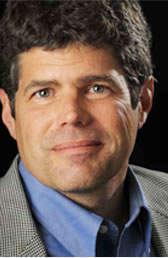 When Jonathan Miller told me about his idea of starting a website titled The Recovering Politician, I thought it was a clever concept—-a partly tongue-in-cheek, partly insightful look at life after elective office. There is the famous last scene in the film The Candidate where Robert Redford’s character, a charismatic underdog running for the US Senate, pulls out a narrow upset against an entrenched incumbent. Just before his acceptance speech he ducks into a small room to avoid the throng of supporters cheering him on. He wants a moment alone with his campaign manager whose sole purpose in life is to win political campaigns. The Candidate, looking perplexed, looks up and solemnly asks, “What do we do now?” (Click on Redford’s mug to view the scene.) When Jonathan Miller told me about his idea of starting a website titled The Recovering Politician, I thought it was a clever concept—-a partly tongue-in-cheek, partly insightful look at life after elective office. There is the famous last scene in the film The Candidate where Robert Redford’s character, a charismatic underdog running for the US Senate, pulls out a narrow upset against an entrenched incumbent. Just before his acceptance speech he ducks into a small room to avoid the throng of supporters cheering him on. He wants a moment alone with his campaign manager whose sole purpose in life is to win political campaigns. The Candidate, looking perplexed, looks up and solemnly asks, “What do we do now?” (Click on Redford’s mug to view the scene.)
It’s an “Aha” moment for the audience that what primarily drives some of our political candidates may not be the privilege of toiling over mundane public policy day in and day out, but rather to “win” some kind of overdramatized contest and the sense of accomplishment that comes with it. (Think of the hit TV series the Apprentice that follows job applicants for months going through a variety of ordeals until one is finally told by Donald Trump, “You’re hired.” We never find out—or care, for that matter—how the winner actually performs on the job.) Political candidates often get similar treatment from voters and the media. We treat business and politics as part sport and part theater.
But The Recovering Politician asks a slightly different and more personally poignant question: When one’s political yearnings have been squelched, dashed, sated, or otherwise drummed out of him or her, doesn’t every ex-politician go into that same small room ––this time alone—and ask, “Now what do I do?” The answer, of course, is yes —and the choices ex-politicos make to create meaning in their lives post-politics is more interesting and hopeful than one might think. The Recovering Politician blog explores this area in hopes of humoring and humanizing the reader—and the subjects.
By Stephanie Doctrow, RP Staff, on Wed Apr 6, 2011 at 1:30 PM ET
Prepare to be inspired. From criminal to landlord: a man turns his life around. [New York Times]
Read this brave story about our own RP Jeff Smith’s second act. [The Recovering Politician]
Relief efforts are making progress in Japan, but there is a long way to go. Check out these amazing pictures of what is left after the storm. [The Guardian]
Download a free recovery.gov mobile app to track projects funded by the Recovery Act on your iPhone: [Recovery.gov]
Is Charlie Sheen on the way to recovery, or does he need some more tiger blood? [Time Magazine]
By Jason Atkinson, on Wed Apr 6, 2011 at 8:30 AM ET 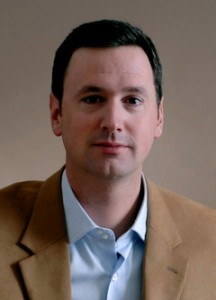 I was born in the Amazon and raised by a pack of wolves until the age of twelve, when some missionaries in dug-out canoes came to spread the gospel, then found me and took me back to their home in Oregon to raise me properly. I was born in the Amazon and raised by a pack of wolves until the age of twelve, when some missionaries in dug-out canoes came to spread the gospel, then found me and took me back to their home in Oregon to raise me properly.
Jonathan Miller, my lifelong friend from our Rodel Fellow days, and expert forger of Al Gore’s signature, asked me to contribute a biographical sketch. I, however, really do not like discussing myself and I chose to use the more interesting Discovery Channel version of a first sentence.
I have never considered myself much of a politician either; I am more like an idealist with twinges of Robin Hood and Teddy Roosevelt pumping through my veins…so much for humility.
I have served in the Oregon Legislature since 1999. My first campaign became a forecast for my political life: lobbyists and “insiders” were against me and contributed $40k to my first opponent. My wife gave me $100 bucks and I outworked the guy. Many campaigns later, sometimes winning both the Republican and Democratic primaries, I am still the same man the “insiders” hold in suspect.
I teach a college seminar on Oregon politics and servant leadership. The class starts with the showing of three speeches: Robert Kennedy’s brilliant speech in Indiana when M.L.K. was assassinated; Representative Barbara Jordan’s speech at Watergate, “we are here to uphold the Constitution, the Constitution that at one time did not uphold me;” and Ronald Reagan’s first inaugural “City on a Hill.” Then I ask the students if they will see that sort of behavior while watching the Oregon Senate. That question is followed by the question that is the final exam: Do you believe 10% of the Oregon Senate holds the other 90% together? If they answer yes, then I ask them to put the names down. Since 2003, most of the answers have been yes, and most of the names are the same. The Senators named are rarely the grand-standers, the partisans or the blowhards. I think this premise holds true in every Legislature, every Congress all the way to the first five Continental Congresses in U.S. history.
If I have an epithet in politics, I hope it would be I was one of the 10%. That is my goal, but looking at my press lately, I am being taught what a rotten person I am. When Jonathan’s and my classmate; Gabby Giffords, was shot; I made a speech about civility and it was not taken well. Bloggers lit me up, talk-radio jumped in and other Senators saw a weakness so they piled on. In the hyper-partisan era we now live in, I am sad to report my experience has not closed the gap between issues or personalities. Thinking of becoming a recovering politician, I told a friend I was not afraid of the heat in kitchen, but after standing in it so long I have asked myself, is it worth it? Going back to that idealism line, I have to answer yes.
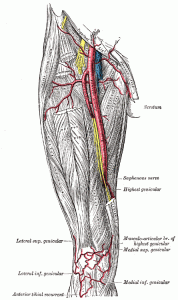 The femoral artery In 2006 I ran for Governor, did not win, started working in Northern Iraq with the Kurds, came home, and was shot in my garage. Unlike the Amazon bit, this is all true. A .38 bullet – hidden inside a bag – was dropped in my shop and the derringer went off, destroying my femur and cutting my femoral artery. My wife heard the noise, came out to find her husband bleeding to death on the floor, tied a tourniquet with a rubber inner tube and has enjoyed Christmas and her birthday even more ever since. I am told I was about 90 seconds away from bleeding out, my leg was to be amputated and I was never to walk again. All three did not happen thanks to God’s healing hand and my headstrong ability to fight through the pain of rehab.
My life changed in that instant, but politics was already speculating I was dead, that I could not win statewide anyway, and that somehow I had shot myself. That last bit was the hardest to hear, as I never saw the gun and had no knowledge of it near me. About a year later, I was speech-making to a crowd of about 1,000 citizens on the steps of the Capitol, when someone who said to all I shot myself introduced me, which got a lot of laughs. I handled it ok, but my wife let the introducer know in no uncertain terms how far out-of-line he was.
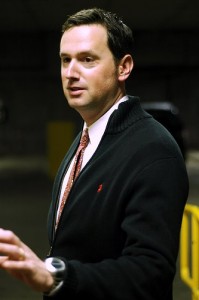 It has been a tough three years: my wife had and beat cancer, our 8-year-old son had and beat cancer, and my party beats on me for not “being good enough.” There is no complaining as I have more pain killers than the lot of bad apples, but it does bring an old American conundrum into focus: How do you vote if your conscience and your district/state/party are at polar opposites? It has been a tough three years: my wife had and beat cancer, our 8-year-old son had and beat cancer, and my party beats on me for not “being good enough.” There is no complaining as I have more pain killers than the lot of bad apples, but it does bring an old American conundrum into focus: How do you vote if your conscience and your district/state/party are at polar opposites?
I struggle with politics. I love service but am burned out on the pettiness. I hope the body politic is not run by those who can raise the most money to personally destroy the competition, but right now that is where the pendulum points.
 A van down by the river... Back to the Amazon with more truths: I earned my MBA after being run over by a car while on my bicycle. I sat on the pavement and thought “I have accomplished everything I set out to do in professional alpine skiing and racing bikes around the world, I think it’s time for grad school.” It was, and I married Stephanie half way through school. I live between Salem/Portland (Oregon’s political and business hubs) and our farm in Southern Oregon, except during steelhead season when I live in a van by the river. Anyway, I fly fish two-handed with religious conviction, struggle to get two more books published and enjoy foreign diplomatic work more than anything I have ever done.
And, just for the record, if you ever need Al Gore to sign something, I know how to get that done.
|
The Recovering Politician Bookstore
|























